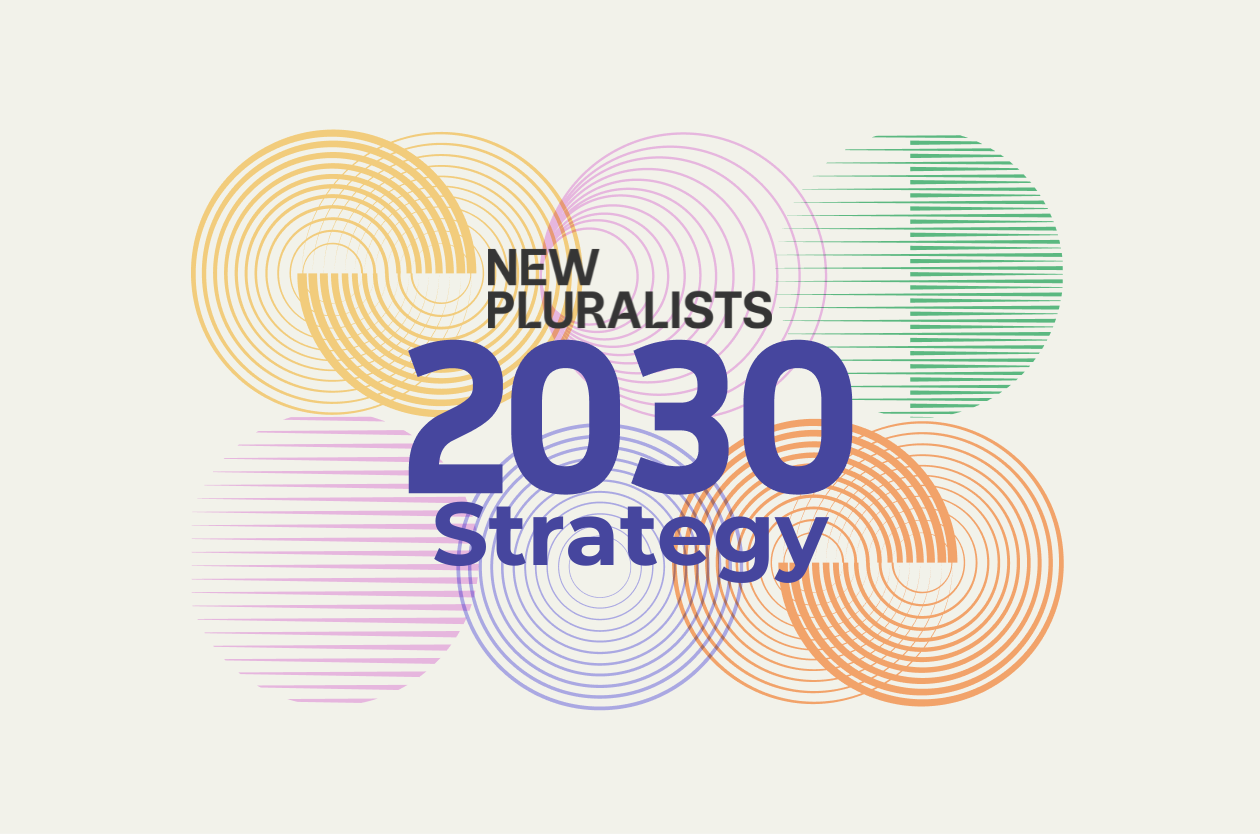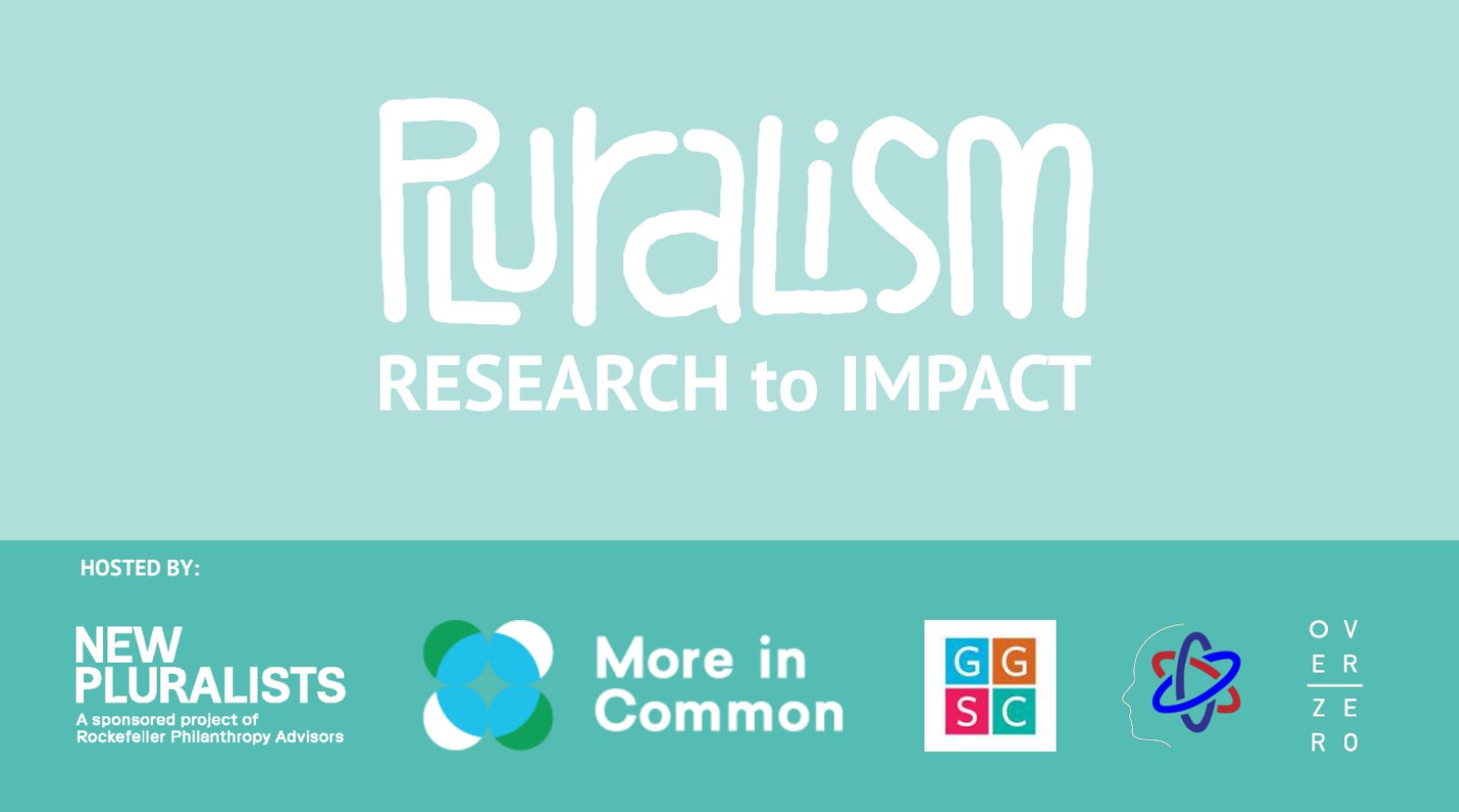Can Pluralism Save America
June 28, 2022

In a new Inside Philanthropy essay, New Pluralists executive director Uma Viswanathan shares what our collaborative sees in the momentum building around pluralism’s role in addressing our country’s challenges.
What does it take for people to come together, solve the challenges we face, and drive progress on critical issues? These are questions leaders are asking across the country. And they reflect a live conversation taking place in philanthropy.
In a new Inside Philanthropy essay, New Pluralists executive director Uma Viswanathan shares what our collaborative sees in the momentum building around pluralism’s role in addressing those questions:
Pluralism is not merely civility or some naïve belief that people can simply overlook their disagreements. Rather, it holds that our differences are a strength. Conflict is a necessary part of social change. Yet it doesn’t have to break us. In fact, people who lend diverse values and voices to a social cause can advance a more just society in which everyone belongs. The more we widen the circle and view others as potential allies instead of enemies, the more likely we are to find ways to move forward together.
How can philanthropy spark and support this momentum? “To start, we can practice what we’re preaching,” says Stephen Heintz, president of the Rockefeller Brothers Fund. “By pushing ourselves outside of our comfort zones and working with partners who come at the challenges faced by our communities and our country with different experiences and sometimes competing ideologies, we increase our chance to grow, innovate, and solve the problems we face.”
New Pluralists draws funders from across different perspectives and of varying institutional types. Our differences are a strength of the model, not an obstacle.
“Our organizations are tackling big societal problems,” says Stand Together CEO Brian Hooks. “Rather than assume that any one of us has all the answers, we’re grateful for the opportunity to work alongside people who are passionate about solving the same problems but see things differently than we do. Stephen’s become a trusted partner not by overlooking our differences but by embracing them. And what we do together is that much stronger for it.”
Fostering that pluralism in grantmaking is equally important. In addition to supporting and partnering with a diverse set of leading national organizations, we’re giving local changemakers a voice at the table and the ability to shape strategies that can scale. We believe this approach will strengthen communities and ultimately lead to more impactful and progress nationally.
Read the full piece at Inside Philanthropy. Learn how you can get involved through the Healing Starts Here RFP and other engagement opportunities. And hear from other leaders in the field of pluralism:
“Violent identity conflicts are commonplace in diverse societies. We live in a society that, for the most part, does not have this kind of conflict between diverse ethnic, religious, and even political groups. It is easy to take that fact for granted and it would be a huge mistake to do so. Nelson Mandela continuously reminded us that we need to live with our opponents after we defeat them – even in the face of great social challenges that we face together, we must consistently remind ourselves that we must live with our fellow citizens after these challenges have been addressed. Pluralism provides both a means to address these great social challenges and the opportunity to build a more beautiful social order while we do so.
“Societally, we are navigating both issues of marginalization and polarization and it is our responsibility to address both. We cannot address polarization in a way that papers over marginalization. We cannot address marginalization in a way that exacerbates polarization. New Pluralists understands this dynamic and creates space and resources to address through community and intentional learning.”
–Eboo Patel, Interfaith America
“The type of polarization tearing America apart is the pointless kind. Nobody benefits. We all lose. The choice isn’t between unity and progress, it’s between building coalitions of constructive Americans acting in good faith, or tearing each other down and accomplishing nothing.
“We have a once-in-a-generation opportunity to break free from the death spiral of toxic division and build a stronger, more united America. We’re not going to get there unless philanthropy does its part. New Pluralists is critical to that effort.”
–Andrew Hanauer, One America Movement
“Building bridges across a range of differences is key to solving American’s most complex problems. Immigration is a case in point. Only one-quarter of the U.S. born population reports having at least one friendship with person who is an immigrant. This means 75% of the U.S. born population has no primary, personal experiences across this line of difference.
“When we have no understanding of – or stake in – each other’s lives and when we lack a sense of shared purpose or mutual destiny, we become a nation where everyone is only in it for themselves. It’s also leaves us susceptible to myth and misinformation about that group with which we have no contact.
“New Pluralists, while still in its infancy, is investing in the necessary relational infrastructure we will need to solve complex issues like immigration. Philanthropy has made significant investments in immigration advocacy work with little policy progress in three decades. Investments in connecting and bridging a wide range of differences, (like immigrants and the U.S. Born) will ultimately help us advance more just policies. The work of connecting people across difference is not a replacement of but a complement to the work of policy change.”
–Wendy Feliz, American Immigration Council


